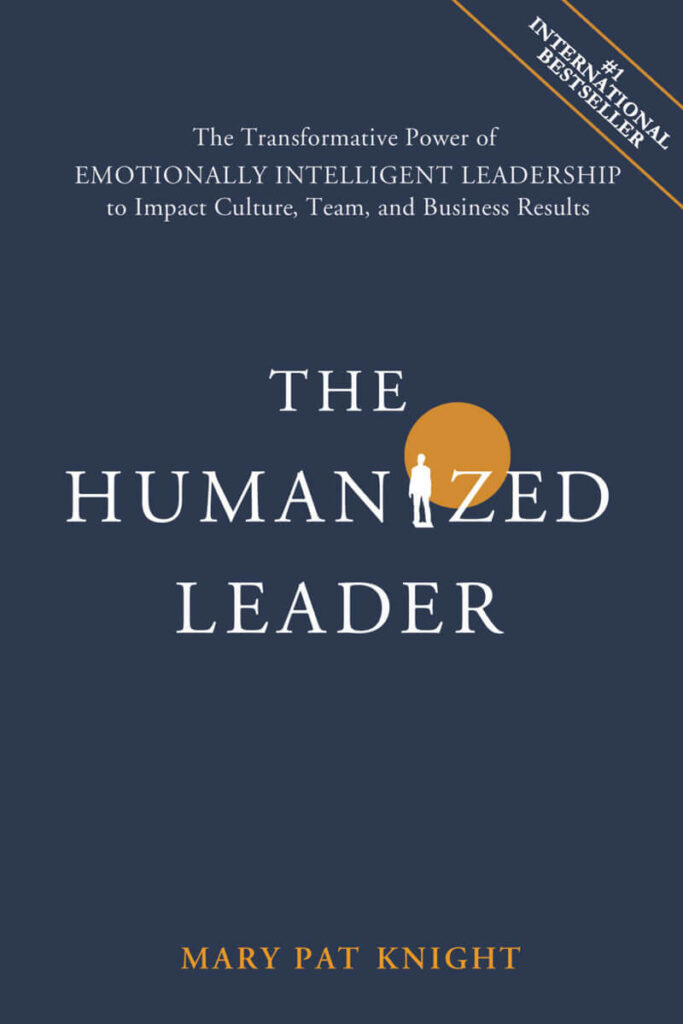From the book, The Humanized Leader:
What’s the difference between criticism and feedback?
Criticism attacks. What’s more, it attacks the person. It is sneaky as it disguises itself as trying to keep the other person safe – think of critical parents. It is more about controlling the other person so that the criticizer can stay in their own comfort zone.
Criticism is personal – “You always,” “you never,” “you should,” “you ought to” are all trigger words that feed criticism. Think how often you use those phrases on yourself when you want to beat up on yourself or when you feel shame. Those phrases are familiar emotional hijacks, taking you right back into a small place of shame, blame, and humiliation.
Criticism is always about the person who is lobbing it. It is about their fear (even if the fear is for your situation), their opinion, their need for you to change to their preference. Ego-based, it does not factor in your feelings, desires, or how you need to be communicated to. Rather, it imposes a judgement on you, your character, or your choices.
Criticism is not feedback.
Feedback is always offered in the spirit of improvement. It focuses on behavior, not personality. It hones you in on actions you can take, thoughts you can have, attitudes you can acquire that lead you to successful outcomes. It does not come out of the blue, but rather is based on a behavior that is not serving you or the expectations you need to achieve.
If you believe that perceived failures are learning opportunities, then feedback creates a learning process rather than a mechanism to point out mistakes. Drop the Villain and move to Quality Control. Again, this is about creating a learning process. If you make a mistake, you simply course correct. It’s a navigational tool that says that when you go off course, the feedback discussion will help you find a way back.
When communicating your feedback, there are four magical words that keep you in leadership:
- Factual: Dealing in fact and observable behavior allows the other to see what can be shifted or changed. Your opinion doesn’t count (sorry!).
- Direct: Sometimes in discomfort, people will step too delicately around what needs to be said. The leader’s job is to speak clearly and directly about the situation so the other is clear.
- Neutral: It is important that you clean your filter (made of your perceptions, biases, judgments, or assumptions) before offering feedback. If not, your feedback may be delivered as criticism. This is where trigger management is useful.
- Kind: Frustration or discomfort might cause you to be brusque. Mismanaged emotions may erupt as anger. It is important to remain kind. Mistakes, even those willful ones, do not deserve your eruptions or criticisms. You can offer tough feedback with kindness. Kindness allows the other person to trust and hear you.
Remember feedback is about supporting someone to reinforce helpful behavior and change unhelpful behavior to allow them to achieve the expectation. It’s not about taking out an opponent who stands between you and your goal.
My grandma always said, “You catch more flies with honey, than vinegar”. Feedback is the honey that makes the medicine go down. Criticism is the vinegar of sour thinking.
You choose.

Mary Pat Knight is CEO of Leaders Inspired – an executive coaching and consulting agency devoted to the development of emotionally intelligent leaders. She is also the author of the Amazon #1 International Best Selling book, The Humanized Leader.
The ground-breaking new book, The Humanized Leader: The Transformative Power of Emotionally Intelligent Leadership to Impact Culture, Team and Business Results, is now available in Kindle or paperback format. To get your copy – or extras for your team, click the button below.





